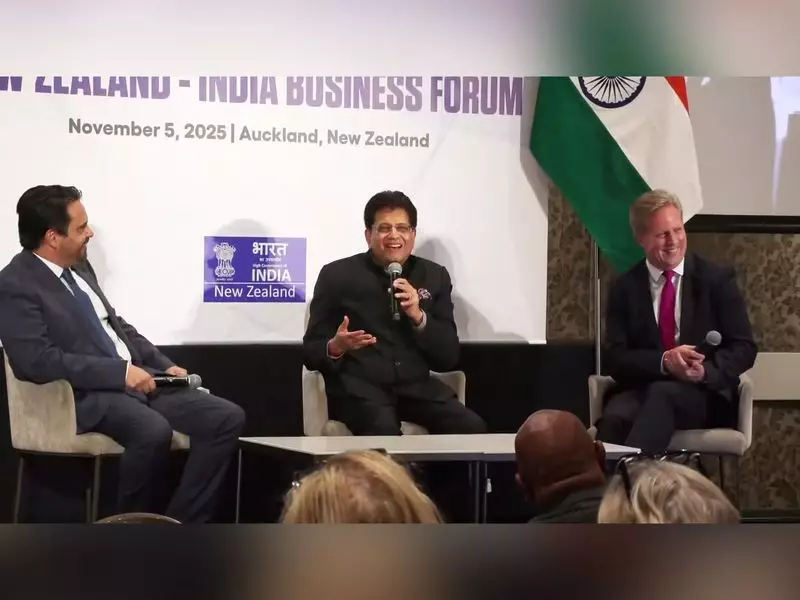
In a significant move to deepen economic cooperation, India and New Zealand have embarked on an ambitious journey to transform their trade relationship into a robust, long-term partnership. During high-level discussions between Commerce and Industry Minister Piyush Goyal and New Zealand's Trade Minister Todd McClay, both nations outlined a comprehensive vision for mutual economic growth.
Strategic Economic Dialogue Takes Center Stage
The bilateral talks marked a pivotal moment in India-New Zealand relations, with ministers from both countries emphasizing the creation of a "win-win" framework that benefits both economies. The dialogue covered extensive ground, addressing critical aspects of trade and investment that have previously hindered deeper economic integration.
Concrete Action Plan with Defined Timelines
What sets this latest development apart is the establishment of a clear, time-bound action plan. Both ministries have committed to an intensive 200-day work program designed to address existing trade barriers and create new opportunities. This structured approach demonstrates the seriousness with which both nations are pursuing enhanced economic cooperation.
Key Focus Areas for Collaboration
- Goods and Services Expansion: Comprehensive discussions on boosting trade across multiple sectors
- Market Access Resolution: Addressing specific barriers that have limited trade potential
- Sustainable Trade Practices: Incorporating environmental considerations into economic partnerships
- Investment Flows: Creating frameworks to encourage bilateral investment
Building on Existing Economic Foundations
The enhanced trade dialogue builds upon existing mechanisms between the two nations, particularly following New Zealand's confirmation that it would not pursue a regional trade pact. This bilateral focus allows for more targeted discussions that address the specific needs and opportunities in the India-New Zealand economic relationship.
The commitment from both trade ministers signals a new chapter in economic diplomacy, one that prioritizes practical outcomes over ceremonial agreements. With regular ministerial interactions planned and a clear work program established, businesses in both countries can anticipate tangible improvements in trade conditions in the coming months.






